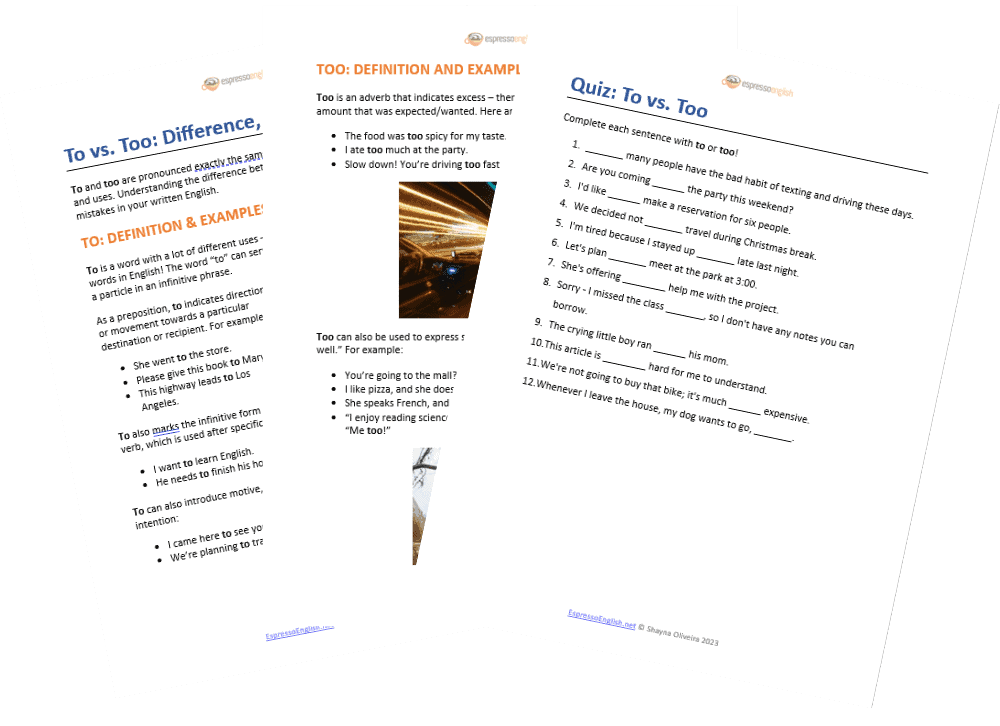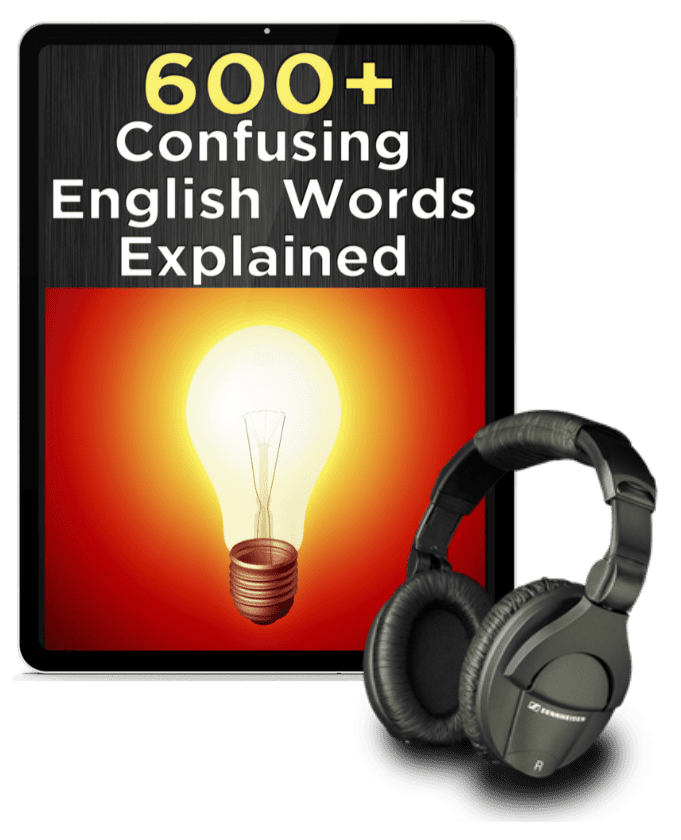
When should we use TO vs. TOO? These words are pronounced exactly the same, but they have different meanings and uses. Understanding the difference between TO and TOO will help you avoid mistakes in your written English.
TO: Definition and Examples
To is a word with a lot of different uses – in fact, it’s one of the most common words in English! The word “to” can serve as a preposition, an infinitive marker, or a particle in an infinitive phrase.
As a preposition, to indicates direction or movement towards a particular destination or recipient. For example:
- She went to the store.
- Please give this book to Mary.

This highway leads TO Los Angeles.
To also marks the infinitive form of a verb, which is used after specific verbs. For example:
- I want to learn English.
- He needs to finish his homework before going out.
To can also introduce motive, reason, or intention:
- I came here to see you.
- We’re planning to travel soon.
More example sentences with the word “to”

We’re planning TO travel soon.
TOO: Definition and Examples
Too is an adverb that indicates excess – there was more of something than the amount that was expected/wanted. Here are some examples:
- The food was too spicy for my taste.
- I ate too much at the party.
- Slow down! You’re driving too fast.

Slow down! You’re driving TOO fast.
Too can also be used to express similarity or agreement, similar to “also” or “as well.” For example:
- You’re going to the mall? I want to come, too!
- I like pizza, and she does too.
- She speaks French, and she can speak Spanish too.
- “I enjoy reading science fiction.”
“Me too!”
More example sentences with the word “too”

Use “me too” to express agreement / similarity
To vs. Too: Summary
- To is used for destination/movement, motive/reason/intention, and as in the infinitive form of verbs.
- Too is used for excess, similarity, or agreement
We also have the word two, which refers to the number “2.” Two is pronounced the same as to and too.
Now you know the difference between to, too, and two!
Try writing your own example sentences with to and too so you can practice and remember the difference.


